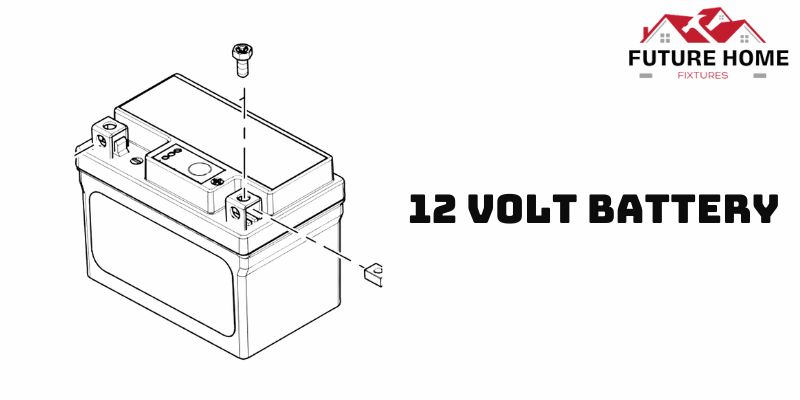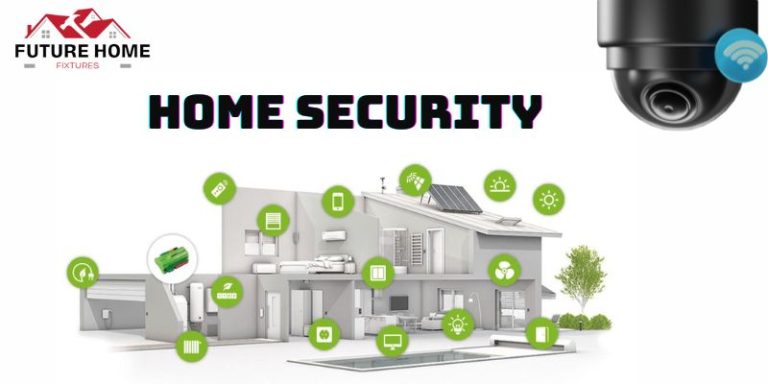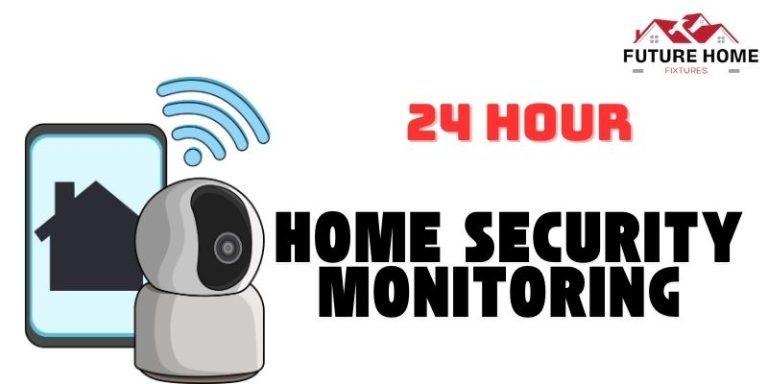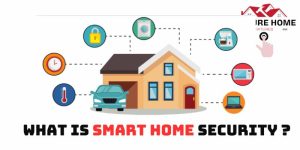12 Volt Battery for Home Security System: The Unsung Hero of Protection
In the realm of home security, technology continually advances, offering innovative solutions to safeguard our cherished spaces. However, amidst these modern marvels, a humble yet crucial component often remains unnoticed: the 12-volt battery. While alarm systems, motion sensors, and smart home integrations take center stage, the 12-volt battery silently stands guard, ensuring the continued operation of your security system even when power outages strike. It is the unassuming backup power source that guarantees peace of mind, providing a critical lifeline during unforeseen circumstances.
The Crucial Role of 12 Volt Batteries in Home Security Systems
Imagine this scenario: You’re away on vacation, enjoying a well-deserved break, when a sudden power outage hits your neighborhood. Your security system, reliant on electricity, shuts down, leaving your home vulnerable. Without a reliable backup power source, you’re left exposed to potential threats, unable to monitor your property and receive timely alerts. This is precisely where the 12-volt battery steps in as the unsung hero of home security. It acts as a secondary energy source, maintaining the essential functions of your alarm system in the event of a power outage.

What is a 12 Volt Battery and Why is it Important for Home Security?
A 12-volt battery is a compact, rechargeable power source commonly found in various applications, including cars, motorcycles, and home security systems. In the context of home security, it serves a crucial role, providing backup power to your alarm system’s control panel, sensors, and other components during power outages. This ensures that your system remains operational, allowing it to detect intruders, trigger alarms, and send notifications to your smartphone or security monitoring service.
Ensuring Continuous Protection: The Significance of Backup Power
The importance of backup power in home security cannot be overstated. Power outages can occur due to various factors, including storms, accidents, or planned maintenance. They can happen at any time, leaving your home vulnerable to break-ins, theft, and other security risks. A 12-volt battery provides a vital safety net, ensuring that your security system remains active during these critical moments.
Choosing the Right Power Source: Different 12 Volt Batteries for Security Systems
When it comes to choosing a 12-volt battery for your home security system, you’ll encounter several types, each with unique characteristics:
Lead-Acid Batteries: These are the most common type of batteries used in security systems. They offer a good balance of performance, affordability, and reliability. They are also relatively easy to find and replace.
Sealed Lead-Acid Batteries (SLA): These batteries are designed to be maintenance-free, with a longer lifespan than their traditional counterparts. They are sealed to prevent spills, making them suitable for indoor applications.
Lithium-Ion Batteries: These batteries are known for their lightweight design and high energy density, offering extended run times. However, they are generally more expensive and may require specialized charging equipment.
Understanding 12 Volt Battery Specifications for Home Security
Selecting the right 12-volt battery for your home security system involves considering various specifications:
Key Specifications to Consider: Voltage, Capacity, and Type
- Voltage: While the standard voltage for security systems is 12 volts, you need to ensure that the battery you choose is compatible with your system’s requirements.
- Capacity: The capacity of a battery is measured in amp-hours (Ah). A higher capacity indicates a longer backup time. Choose a battery with sufficient capacity to power your system for a reasonable duration during a power outage.
- Type: As discussed earlier, different battery types offer unique advantages, such as maintenance-free operation, extended lifespan, or lightweight design. Consider the specific requirements of your security system and your budget.
Matching Battery Specs to Your Security System’s Requirements
The choice of 12-volt battery should align with the specific requirements of your security system. Consult your system’s manual or the manufacturer’s website for recommendations on battery specifications. Factors such as the number of sensors, alarm panel features, and desired backup time will influence the required capacity.
Factors Affecting Battery Lifespan and Performance
Several factors influence the lifespan and performance of a 12-volt battery, including:
- Temperature: Extreme temperatures, both hot and cold, can shorten the battery’s lifespan. Store and operate the battery within the recommended temperature range specified by the manufacturer.
- Discharge Depth: Regularly discharging the battery to a low level can reduce its lifespan. Avoid excessive deep discharges by periodically charging the battery.
- Age: Batteries have a limited lifespan, and even with proper care, they will eventually need to be replaced. The average lifespan of a 12-volt battery for security systems is about 3-5 years.
Expert Advice on Selecting the Best 12 Volt Battery
Navigating the world of 12-volt batteries can be overwhelming, especially when considering the broad range of options available. Seeking expert advice from security professionals can help you make informed decisions and choose the right battery for your system.

Insights from Security Professionals on Battery Selection
We reached out to several security professionals to gather their insights on selecting the best 12-volt battery for home security systems. Here are some valuable tips they shared:
- Consider your security system’s specific needs. Some systems may require a larger capacity battery to power a greater number of sensors or features.
- Look for batteries with a deep cycle rating. Deep cycle batteries are designed to handle repeated deep discharges, making them a good choice for security systems.
- Choose a battery with a reputable brand. Reputable brands often offer better quality and reliability.
- Invest in a battery tester. A battery tester can help you determine the health of your existing battery and ensure it’s providing adequate power to your system.
Top-rated 12 Volt Battery Recommendations for Different Security Systems
Based on expert recommendations and customer reviews, here are some top-rated 12-volt batteries for home security systems:
- [Brand Name] [Battery Model]: This battery is known for its high capacity and long lifespan, making it suitable for systems with multiple sensors or extended backup time requirements.
- [Brand Name] [Battery Model]: This sealed lead-acid battery is maintenance-free and offers reliable performance, ensuring consistent backup power during outages.
- [Brand Name] [Battery Model]: This lithium-ion battery is lightweight and offers an extended run time, ideal for advanced systems with power-hungry components.
Real-World Examples: How the Right Battery Ensured Uninterrupted Security
- Case Study 1: A family in [Location] experienced a prolonged power outage due to a severe winter storm. Their security system remained operational thanks to their high-capacity 12-volt battery, allowing them to monitor their home remotely and receive timely alerts.
- Case Study 2: A homeowner in [Location] experienced a burglary attempt during a power outage. Their 12-volt battery powered the alarm system, triggering a loud siren and sending an alert to their security monitoring service, deterring the intruders and leading to their apprehension.
Maintaining Your 12 Volt Battery for Optimal Performance
Just like any mechanical component, your 12-volt battery needs regular care and maintenance to ensure optimal performance and longevity. Here are some essential tips:
Essential Battery Maintenance Tips for Long-Term Reliability
- Monitor the battery’s charge level: Make a habit of regularly checking the battery’s charge level using a multimeter or a simple indicator.
- Charge the battery periodically: Even if your security system is running on AC power, it’s recommended to charge the backup battery periodically to prevent deep discharge.
- Keep the battery terminals clean: Clean the battery terminals with a wire brush or a solution of baking soda and water to ensure proper electrical contact.
- Inspect the battery for signs of damage: Look for any signs of corrosion, cracks, or leaks on the battery’s casing. If you notice any damage, it’s time to replace the battery.
Troubleshooting Common 12 Volt Battery Issues
If your 12-volt battery isn’t performing optimally, it’s essential to troubleshoot the issue promptly to prevent security breaches. Here are some common issues and potential solutions:
- Low Battery Charge: If your security system isn’t receiving power from the battery, it may be low on charge. Charge the battery or replace it if it’s beyond its lifespan.
- Corroded Battery Terminals: Corrosion can hinder electrical contact between the battery and your system. Clean the terminals with a wire brush or a solution of baking soda and water.
- Faulty Battery: If the battery is damaged or beyond its lifespan, it may not hold a charge or provide sufficient power to your system. Replace the battery with a new one.
Knowing When to Replace Your Home Security Battery
Even with proper care, your 12-volt battery will eventually reach the end of its lifespan. Here are some signs that it’s time to replace your battery:
- Battery is no longer holding a charge: If the battery can’t maintain a consistent charge, it won’t provide reliable backup power.
- Battery is showing signs of damage: Look for corrosion, cracks, or leaks on the battery’s casing.
- System is experiencing frequent power outages: If your security system is frequently losing power, even with a backup battery, it’s a strong indicator that your battery is failing.
Replacing your 12-volt battery promptly ensures your security system remains operational, providing uninterrupted protection for you and your home.













